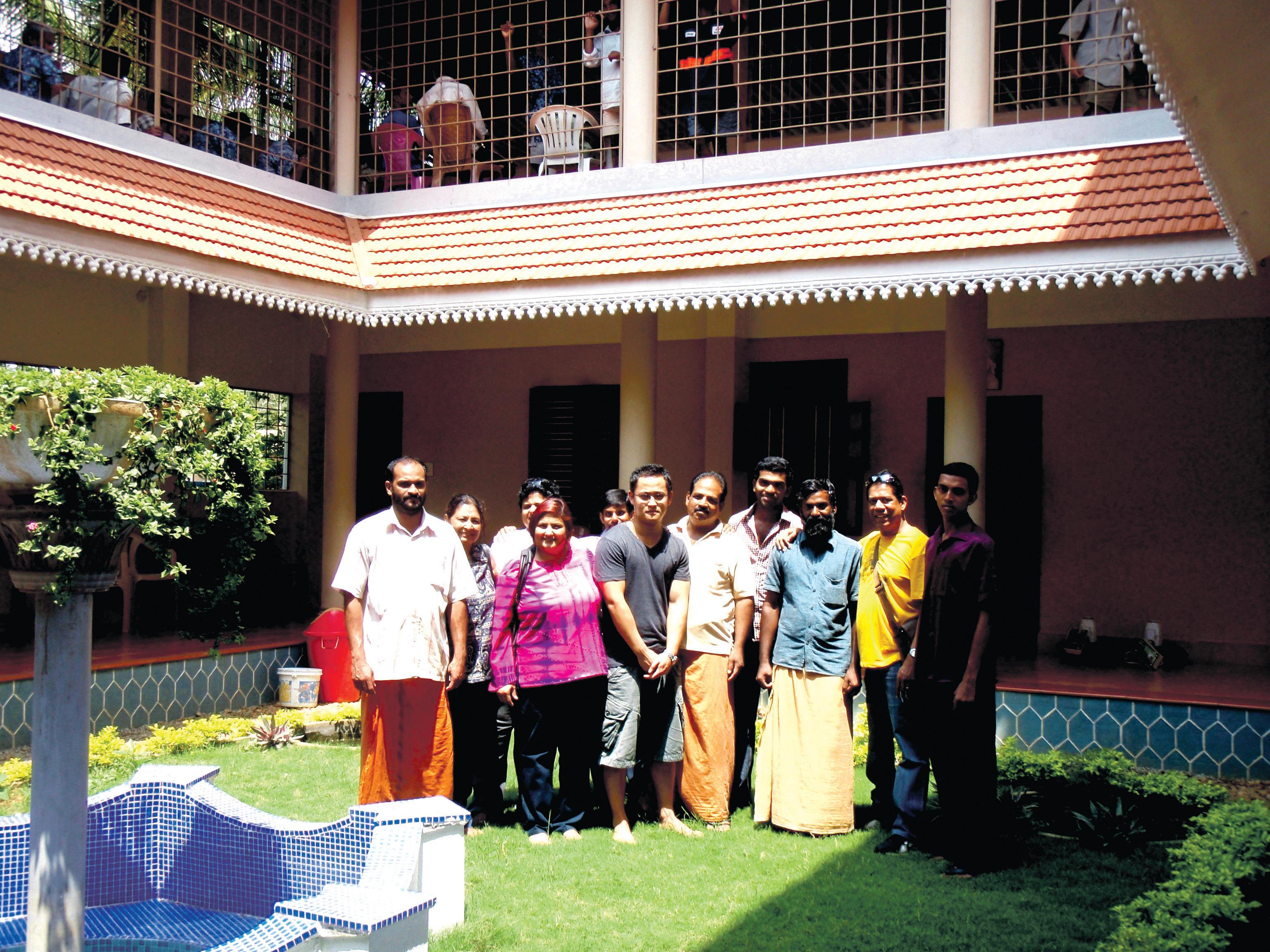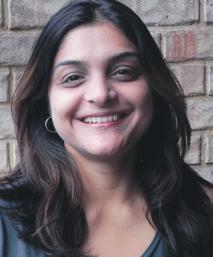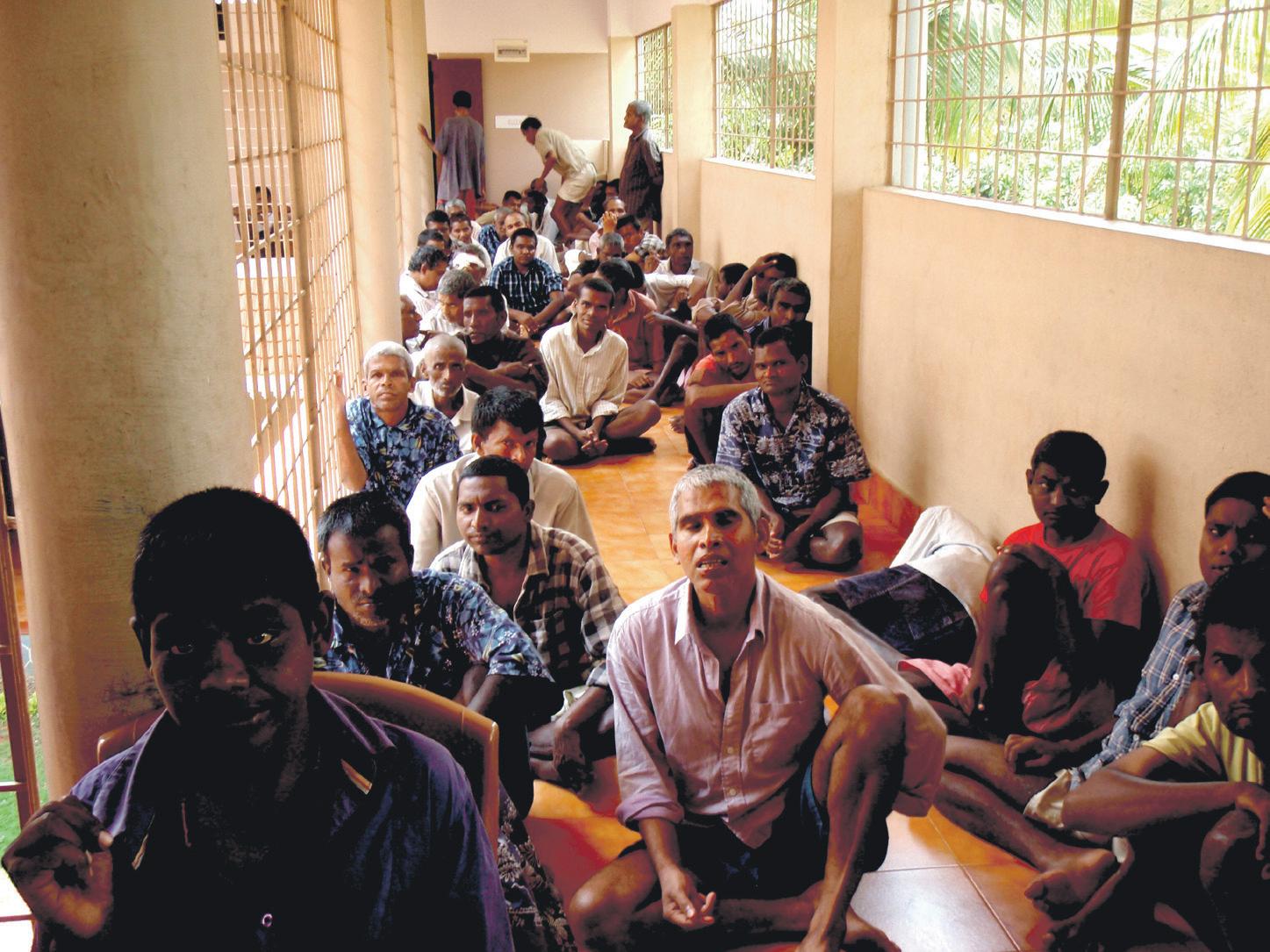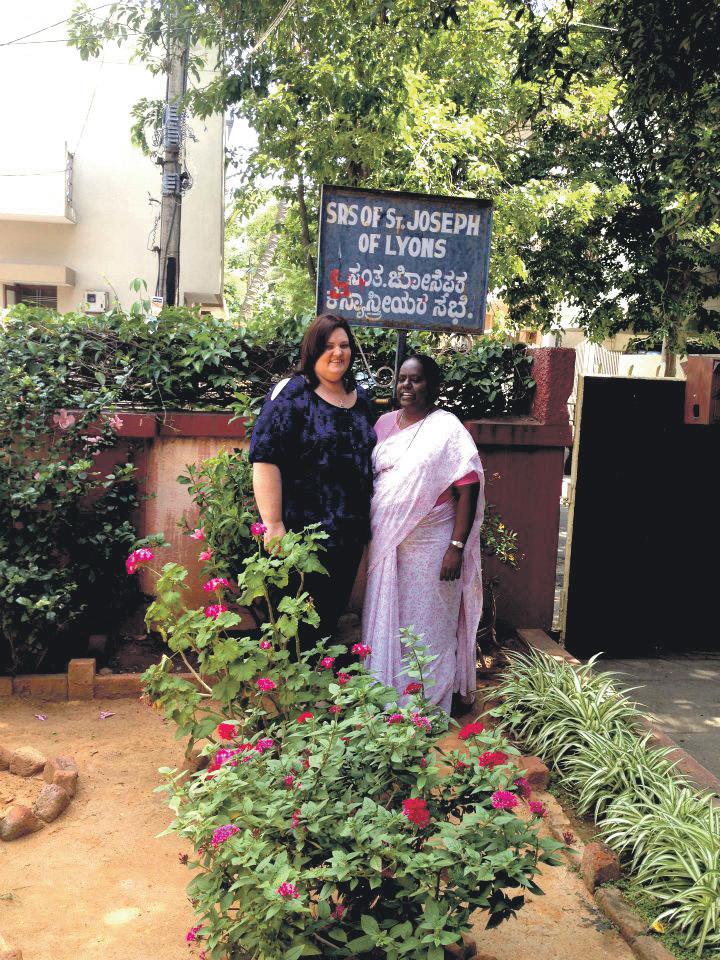
4 minute read
Friends of the intellectually disabled
from 2012-08 Sydney (1)
by Indian Link
Founded in Australia, GHARA aims at helping and supporting the intellectual disabled in India
BY DOLLY SINGH MIRANDA
Intellectual disability is an endemic, yet overlooked problem in India, with over 2 million of the population vulnerable and without support because of their condition. As the country has several socioeconomic problems, this issue has perhaps not been given priority and the fact remains that there are few organisations that currently support adults and provide respite to families in these situations.
But now, a group of like-minded Australians has created a not-forprofit organisation called GHARA, (Group Home and Respite Association) to help support people with intellectual disability in India. ‘Ghara’ means ‘home’ in several regional languages, and incorporates the essence of the organisation – to provide the security and comfort of a home for the intellectually disabled.
GHARA is the brainchild of Athellia Dias, the founder and chairperson who grew up in Mumbai, and has worked in the disability sector in both India and Australia.
Member Trustee Kylee Davis told Indian Link more about the group.

“It’s Athellia’s passion and her conviction that got this project off the ground,” said Kylee.
“Her vision for GHARA began 17 years ago with a ‘wish and a want’ to meet the needs of those intellectually disabled who had no support, and it’s coming to fruition in 2011 has her and the team raring to go”.
The current GHARA team in Australia consists of Kelvin Dias (Athellia’s husband), Diana Mascarenhas, Bianca Pudadera, Kylee Davis, Kamella Alcantara and Marianne Fernandes, all of whom are voluntarily contributing their skills and knowledge to the cause. Their backgrounds are varied but they are all involved with special care, the nursing and healthcare industry, and all have a strong commitment towards to goals of GHARA.
GHARA is based in Bengaluru, India and aims to build a network of support for adults with an intellectual disability and respite for their families/carers, while respecting their religious and cultural beliefs. It hopes to provide accommodation for adults with an Intellectual Disability, and intends focussing on re-integrating these individuals back into society, instead of segregating them.
GHARA’s intention to utilize local resources and hire local staff will generate jobs for locals.
So what made this group come together to aid those with intellectual disability in faraway India?
“We all know that Australia has a reasonably strong support system here for the intellectually disabled. However, research showed that this is not the case in India where care for the intellectually disabled is limited to a few charitable organisations and special schools mostly for children,” explained Kylee. “Athellia wanted to introduce at least some aspects of caring for these disabled people into the system in India, and help in the process of respite for their carers, who do an incredibly tough job.”
The team has been like-minded in their commitment to the goals of the organisation, and Kylee herself is enthusiastic about her role, which includes fundraising, marketing and awareness. “I have always had a high level of empathy with the disabled, and even in my childhood used to visit several homes with my nanna. My children are also incredibly supportive and very proud of my involvement with GHARA. In fact my daughter has gifted me a laptop to help me with my work,” she revealed proudly.
Kylee explained that the GHARA committee has created a 5-year plan with two phases. “Phase 1 is the set up and establishment phase over two years which includes creating awareness, establishing networks and tieups with different organisations such as hospitals, corporates and government bodies,” said Kylee.
“We already have a team of volunteers on board who will help in running things on the ground. They will go into the homes and understand what the family dealing with intellectual disability needs.”
Focusing on gaining acceptance and winning trust of the families first is the key to success.
“We have to understand that there are challenges which individuals with this disability face within Indian society, which are primarily rooted in religious beliefs, cultural norms and misinformation, or a lack of information regarding disabilities in general,” she noted. It’s no surprise that the organisation has to be extremely mindful of current perceptions and challenges. Once the volunteers gain acceptance, they will then begin with teaching the intellectually disabled basics towards inclusion in the community, take them to appointments with doctors, get them involved in learning some craft, or just provide a muchneeded break to the carer.

In phase 2 over three to five years, GHARA aims at providing centre-based respite, where adults with intellectual disabilities and their families can come and stay at the centre.

The GHARA team here have already been travelling back and forth between Bengaluru and Sydney since April 2011, on their own expense. They are working tirelessly to establish networks and have already received positive responses from hospitals like St Johns, who will support GHARA by providing speech therapy and occupational therapy to the intellectually disabled.
They have also enlisted the support of the St. Josephs Alliance, whose Sister Junova is now part of the GHARA team, handling operations in India and currently taking lessons in Kannada to communicate more effectively across the community! The team meets up every Monday, with Sister Junova in India hooking up via Skype to report progress on the project.
As for Kylee, how were her personal experiences in Bengaluru?
“I loved the idlis and dosas!” she says enthusiastically. “I found people to be extremely warm and helpful. Strangers often went out of their way to help me in many situations”.
“The only thing that took getting used to was travelling in rickshaws as well as crossing the roads without proper zebra crossings!” she adds, laughing infectiously. GHARA raises awareness and funds in Sydney through a variety of events in community centres, such as bingo or poker nights, and speciality fun event nights such as murder mystery solving, among others.
GHARA is a truly pioneering and committed involvement in the area of intellectual disability, and the volunteers who make up the organisation should be commended and supported for their work.
Visit www.ghara.org for more information, to donate or to volunteer.
Some facts on intellectual disability in India
• India has more than 2 million adults with an intellectual disability.
• Intellectual disability is commonly referred to as “mental retardation”.
• Persons with intellectual disabilities are frequently the most vulnerable group, they are exposed to human rights violations and even deprived of minimum services and dignity.
• Individuals with an intellectual disability lack
* Life skills and remain a liability on the family and community;
* Rehabilitation services to integrate them into the community;
* Respite and accommodation services;
* Support networks for their families/unpaid carers in the community.










